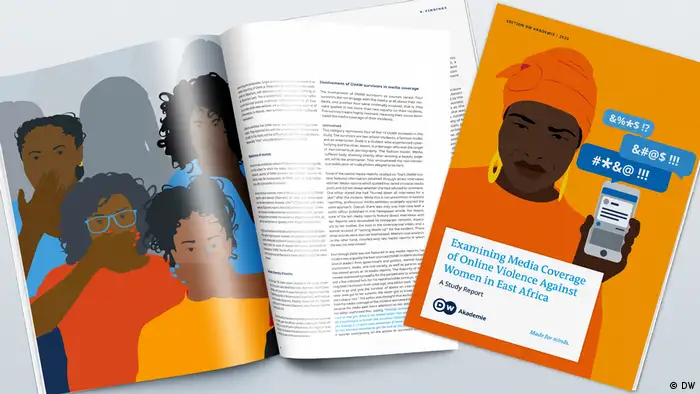Publications
Media reporting on online violence against women in East Africa harms victims
A new study highlights harmful media reporting on online violence against women in East Africa. It recommends advocacy and training for sensitive and responsible reporting.
“He had my [nude] photos and wanted to release them to the public because I was already a renowned artist,” said Bridgette, a musician from East Africa.
After her private photos were leaked, Bridgette fainted and had to be hospitalized for two days, she shared. Bridgette's story sheds light on the devastating impact of online violence against women.
Online violence against women takes various forms, such as cyberstalking, non-consensual sharing of nude images, body shaming and insults. It is a grave issue that affects women worldwide and is often rooted in gender inequality and discrimination.
The issue can spill over from private online spaces into public spaces. Therefore, the media can play a crucial role in reporting on the subject without perpetuating violence against women. Unfortunately, this is not always the case. Bridgette’s story is one of the cases analyzed in a survey commissioned by DW Akademie in Uganda, Kenya, Rwanda and Tanzania about the coverage of online violence against women.
Key results
The results of the study show that media reporting on online violence against women in East Africa can be harmful to the victims. Many media outlets use attention-grabbing headlines and sexualized images that focus on the victim's nudity or actions rather than that of the perpetrator. Furthermore, the study reveals that some media outlets in East Africa do not fully understand the seriousness of online violence against women. Journalists often trivialize incidents, and their reporting does not meet ethical standards. This can lead to victim-blaming, which adds to the victim’s trauma and shame.
Recommendations for journalistic training and advocacy
Based on the study's results, recommendations for journalistic training and advocacy work include, for example, ethical and sensitive reporting of online violence against women. Media outlets must avoid victim-blaming and stigmatization, use sensitive language when reporting on victims and alleged perpetrators, and refrain from sexualizing incidents involving nudity. Advocacy strategies should target media outlets by influencing editors and columnists to take a stand against online violence against women and generate creative content on the issue. Additionally, media regulation can play a crucial role in holding digital platforms accountable for the content they post, including offensive remarks related to online violence against women.
If you are interested in learning more about the recommendations for reporting on online violence against women as well as potential advocacy strategies, you can download the full report below.
DW recommends
Downloads
- Date 12.09.2023
- Feedback: Send us your feedback.
- Print Print this page
- Permalink https://p.dw.com/p/4RM50
- Date 12.09.2023
- Send us your feedback.
- Print Print this page
- Permalink https://p.dw.com/p/4RM50

